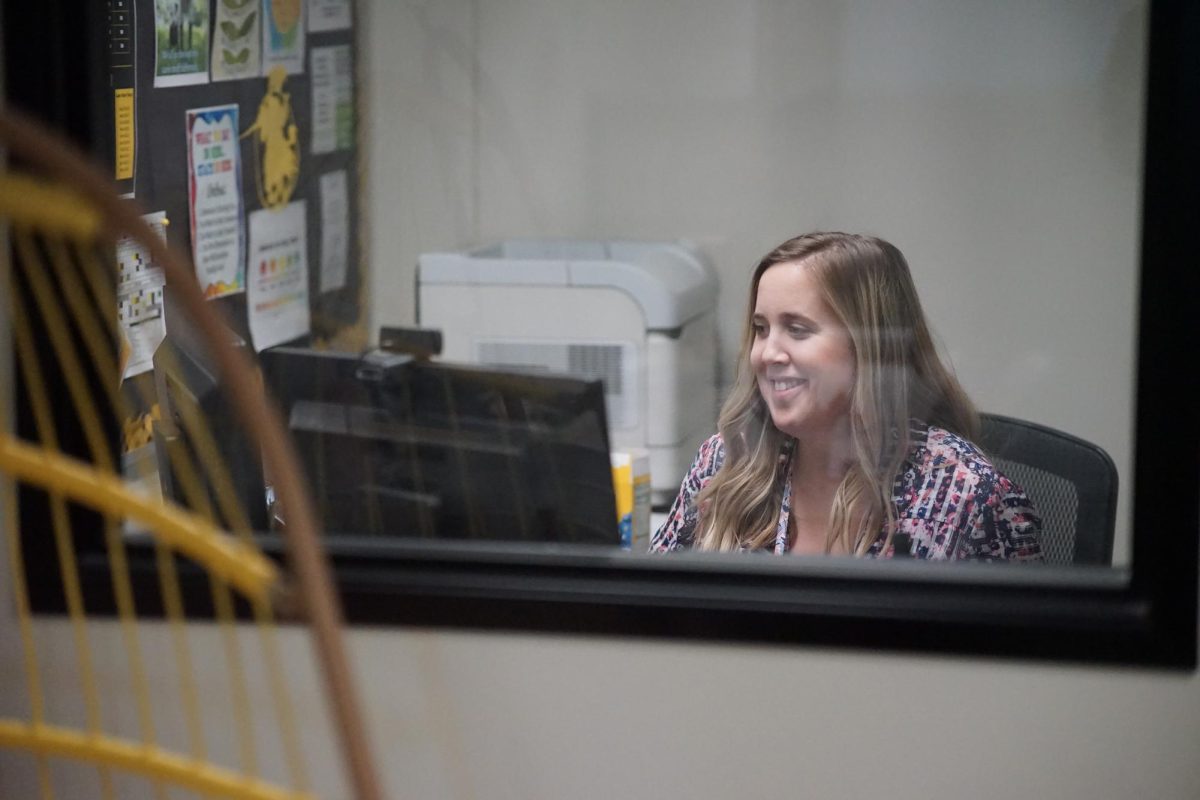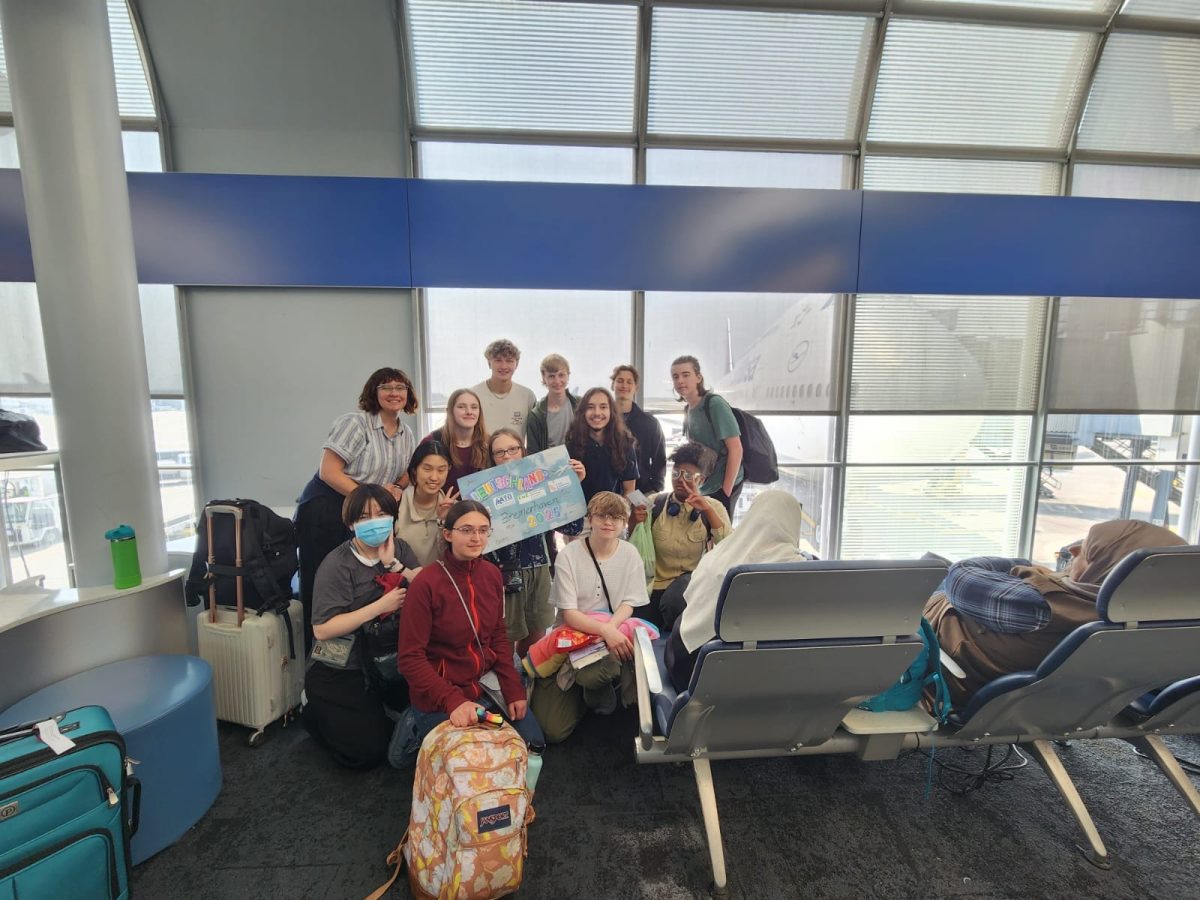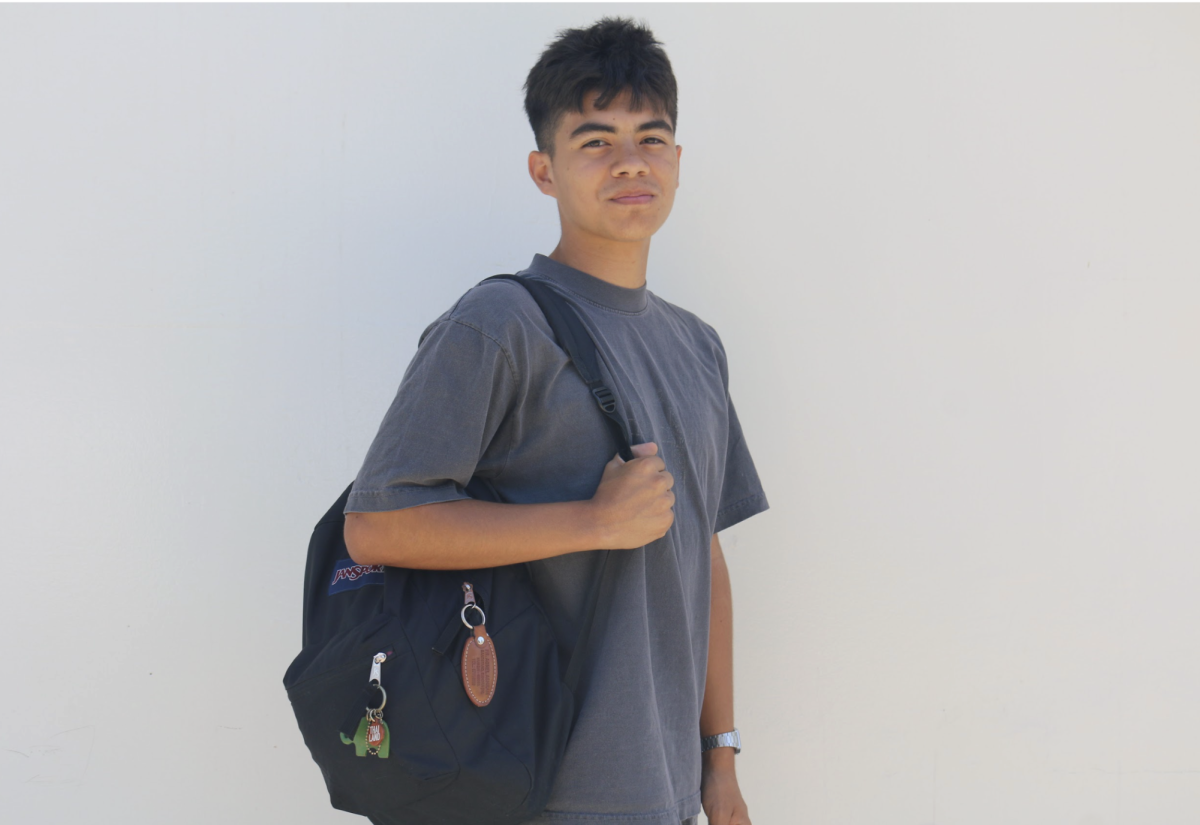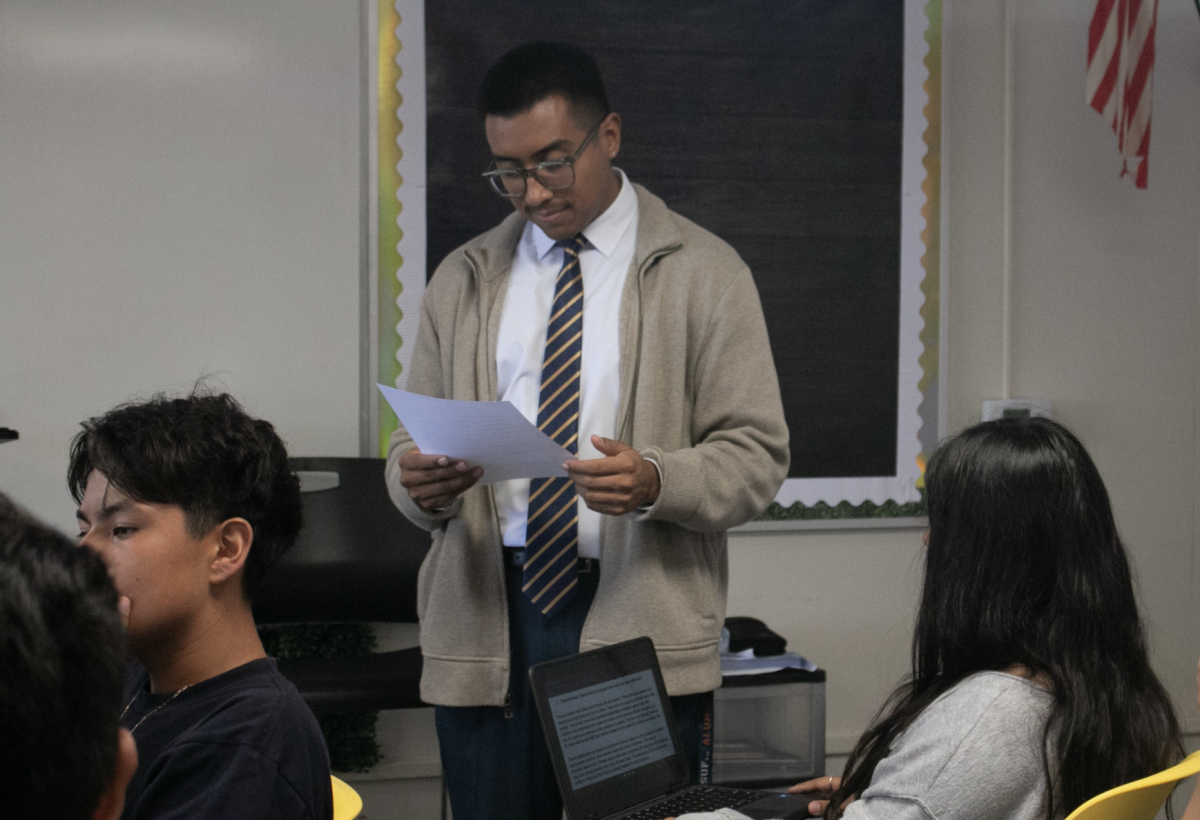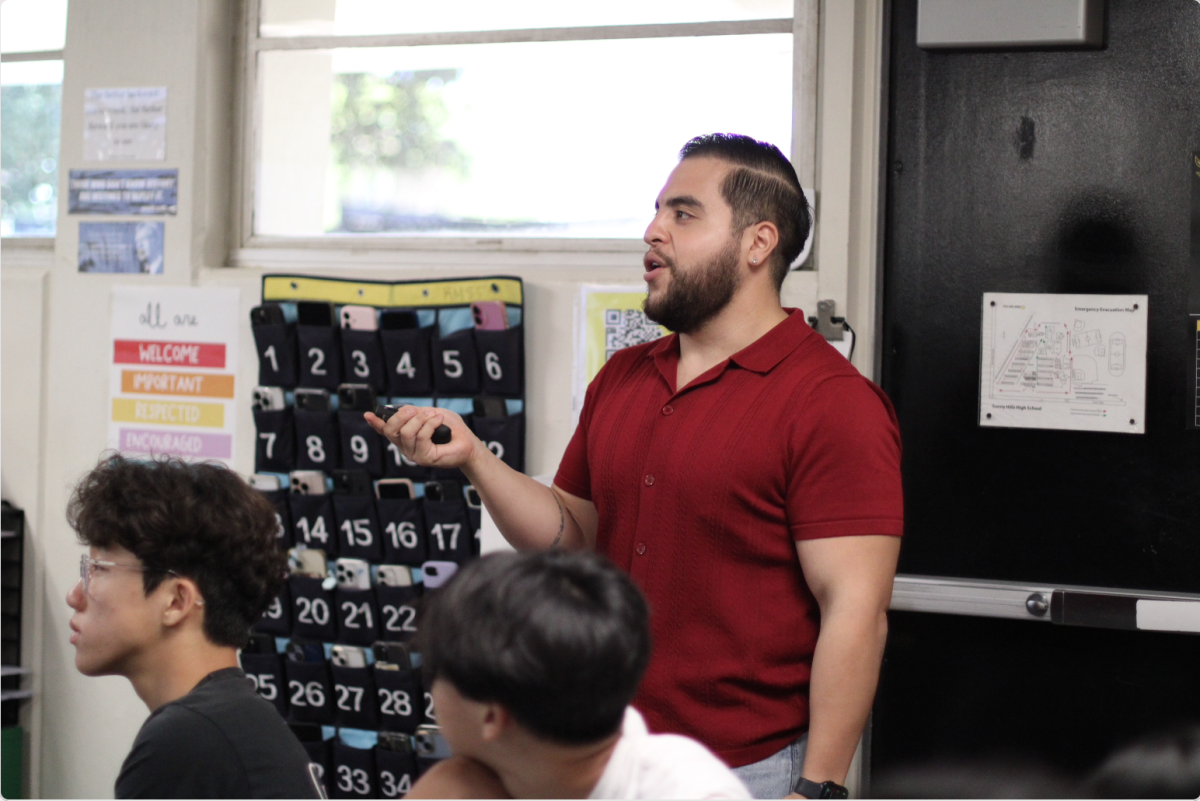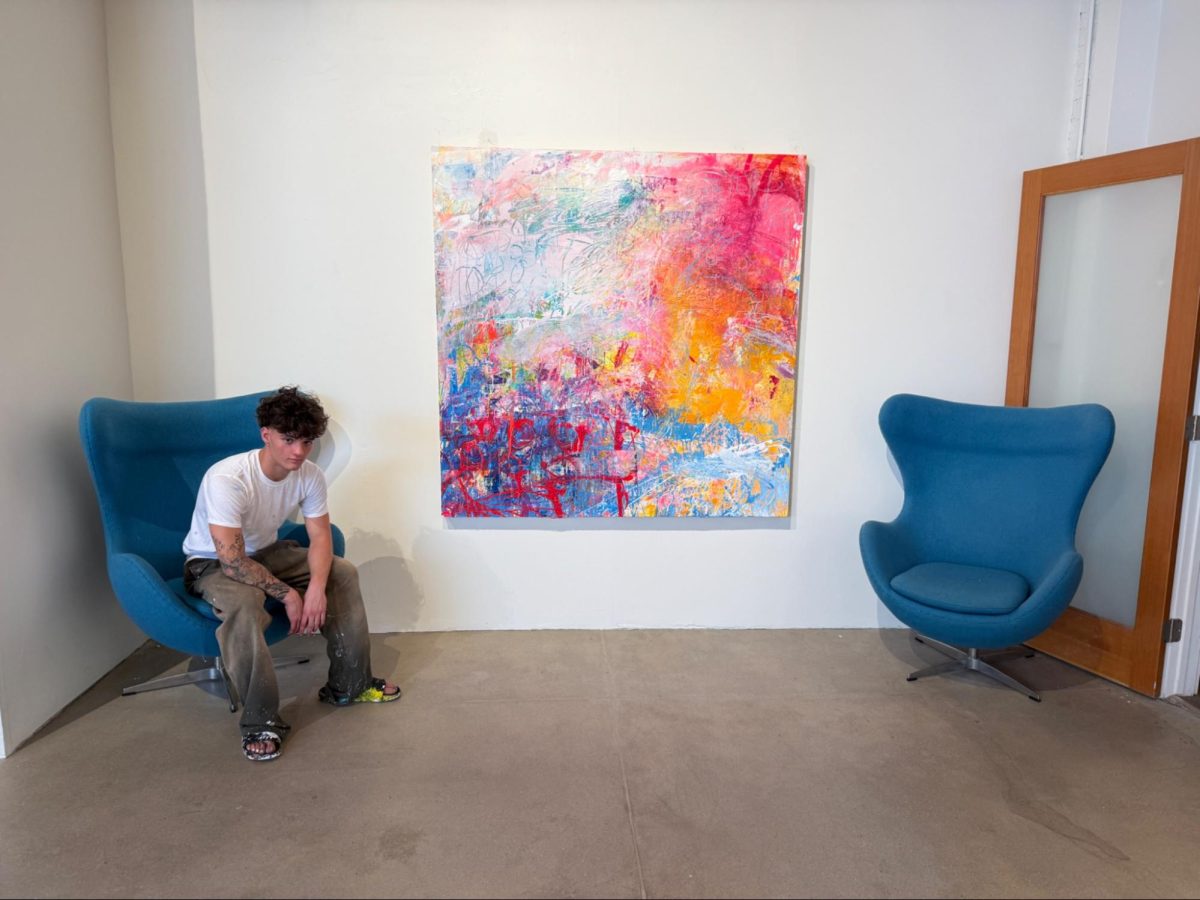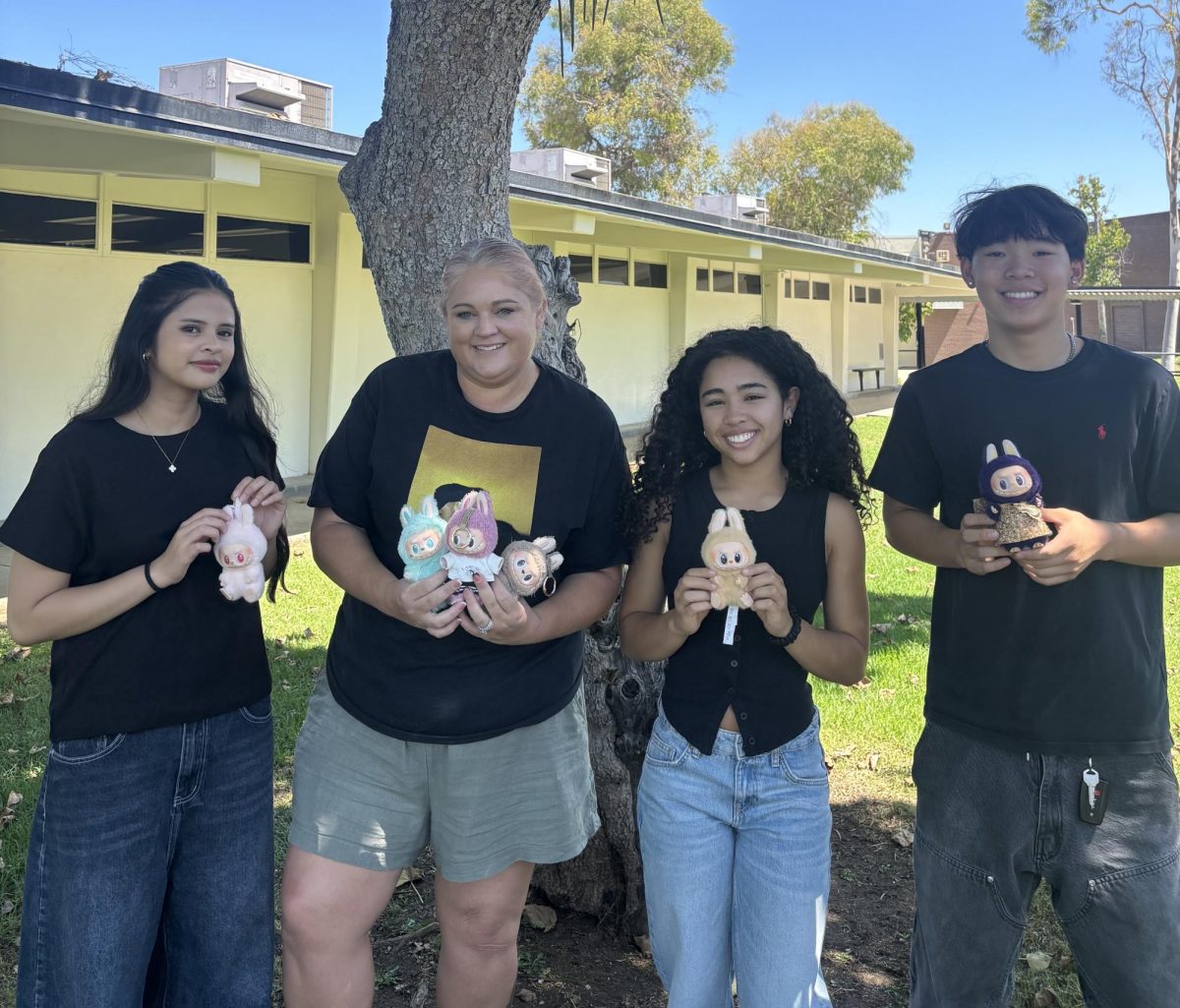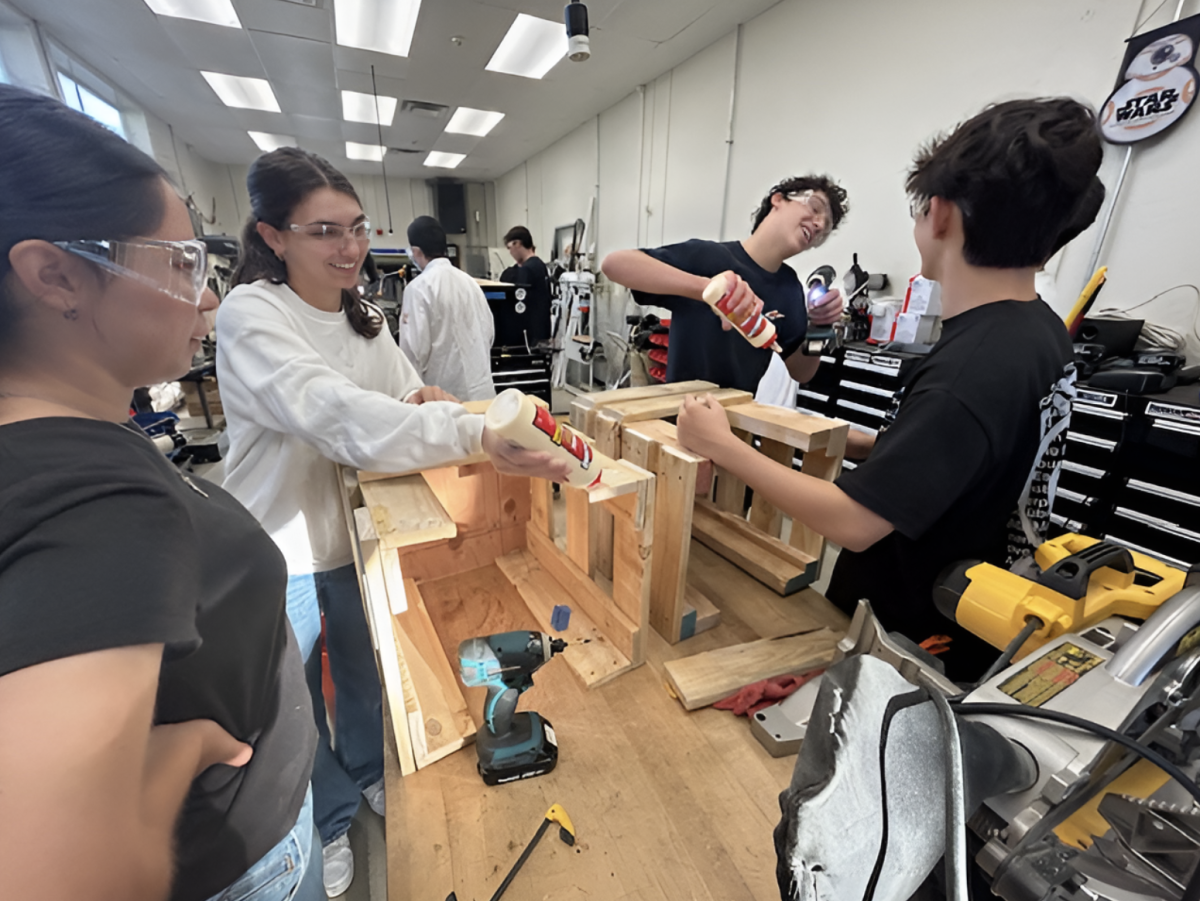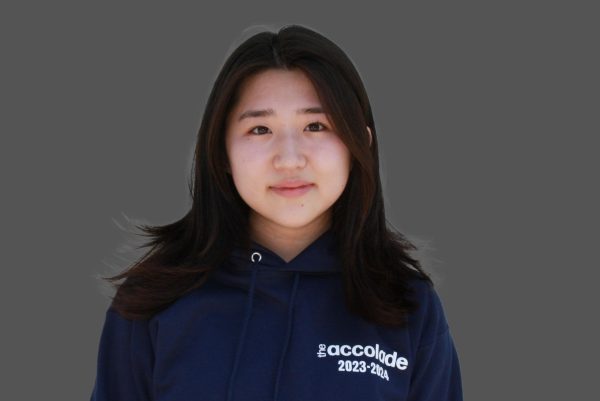By a twist of fate, this past summer, Staci Balliet stumbled upon a time capsule dating back to her elementary school years.
Unlocking the contents of her personal archive, Balliet revealed that her fifth grade self had expressed an early interest in a career related to child services.
In the midst of some unexpected turns, now mental health specialist Balliet assumes a full-time position on the Sunny Hills faculty, following the Fullerton Joint Union High School District’s [FJUHSD] decision to assign a dedicated mental health specialist to each of its eight schools.
“I think that it’s always kind of been in my head that this is what I wanted to do,” Balliet said. “I just took a little detour and came back.”
Though she initially studied nursing at California State University, San Marcos [CSUM], Balliet said she soon realized that the field conflicted with her career goals and transitioned into social work during her first semester of college in 2009.
“I always had an interest in helping others, and I kind of thought that [nursing] was the path that I wanted to take to get there,” the mental health specialist said. “After I realized how academically hard that was going to be for me and how much science went into that, I switched paths.”
An internship during her last year of undergraduate studies at a group home facility for foster youth cemented Balliet’s belief and prompted her to rediscover a passion for child services.
“I think it gave me a lot of perspective and made me realize that a lot of working with other people, specifically youth, is just connection and relationship building,” she said.
Upon completing her undergraduate and master’s program at CSUM in social work with an emphasis on children, youth and family in 2013 and 2016, respectively, she obtained her Pupil Personnel Services credential at San Jose State University in 2016.
Right out of college. Balliet secured a five-year position as a school social worker at a school district in San Diego County, which she declined to name for privacy reasons.
“I was doing a lot more case management-type services, and I covered multiple schools at once,” she said. “I realized that I wanted to do more clinical-type work with students as opposed to just connecting them with resources.”
For more specialized work, Balliet initiated a three-year journey to become a licensed clinical social worker.
Throughout this period, she fulfilled 3,000 hours of clinical work supervised by a licensed social worker. She also studied for nearly six months in preparation for the California Law and Ethics Exam and the Association of School Work Boards social work licensing exam, all while commuting from Orange County to San Diego.
“It took me a little bit longer than anticipated because of [COVID-19], and I went on maternity leave as well,” said Balliet, who became a licensed clinical social worker in August 2022.
During this time, the mental health professional discovered a job opening in the FJUHSD on edjoin.org — a site frequented by those looking for employment in education.
“I have worked in school districts ever since I graduated with my master’s [degree], so I was kind of familiar with that process already,” she said.
Following an interview with the district’s director of Student Services and SH assistant principal Katie Wright, Balliet was offered a position as a mental health specialist a week later in April 2023.
“What I realized very quickly was that she had a lot of personality that was able to come through the Zoom, and it seemed like she would be somebody who could build an easy rapport with students and staff,” said Wright, who manages the administrative factors of the school’s mental health services.
Now headed into her eighth year working as a mental health professional, Balliet oversees a range of responsibilities, which extend from running support groups with students to supervising the newest wellness space located in Room 20.
Although she provides support for students requiring immediate assistance, her responsibilities typically involve universal instruction and group intervention support. In special cases requiring intensive assistance, she coordinates external referrals with agencies that provide specialized, one-on-one services.
“I’m not a therapist on campus, so I don’t have a caseload of kids,” said Balliet, whose role pertains primarily to on-campus related services. “Of course, if a student is in a crisis and they need immediate mental health support, I do give them that, but I’m not an ongoing provider.”
During the first week of school, Balliet said she organized a presentation for English teacher Jill Lomheim’s students upon the educator’s request.
“I felt like juniors tend to have the hardest academic year, and I wanted them to know that there was a place and space for their help or to help them should they need it,” said Lomheim, who at the time taught three periods of College-prep 11th grade English and two periods of Advanced Placement English Language and Composition [AP Lang]. “I think [Balliet’s] ability to normalize a very complex topic and provide a space for her students to have a conversation with themselves, but also within an academic setting, gives students an opportunity to feel free to share who they are and what they’re going through.”
The mental health specialist has since presented to nearly 900 students on campus, including sports teams and special education classes, on topics ranging from stress management to tips on a smooth transition back to school.
“I feel like mental health over the years has become a growing issue, especially among students,” said junior Layla Andre, who was among Lomheim’s zero period AP Lang students who viewed Balliet’s presentation. “This is why I appreciated a lot of her advice since it was catered toward helping students specifically with stress management.”
Wright said she appreciates Balliet’s efforts to build trust among members of the SH community.
“I think that if it wasn’t positive, we wouldn’t have teachers continuing to request her to do those large classroom presentations,” Wright said. “I think that it was a hugely progressive step for the district to be able to give everybody one mental health specialist, and right now, as far as Sunny Hills is concerned, our numbers are showing that one is sufficient.”
Balliet said she hopes to encourage student engagement in mental health by coordinating more campus-wide initiatives and continuing her series of classroom presentations.
“My goal is to get more students wanting to participate,” Balliet said. “I hope to destigmatize what mental health is and try to get to know students and have them feel comfortable coming into this space and either talking with me or utilizing other services that are available.”



